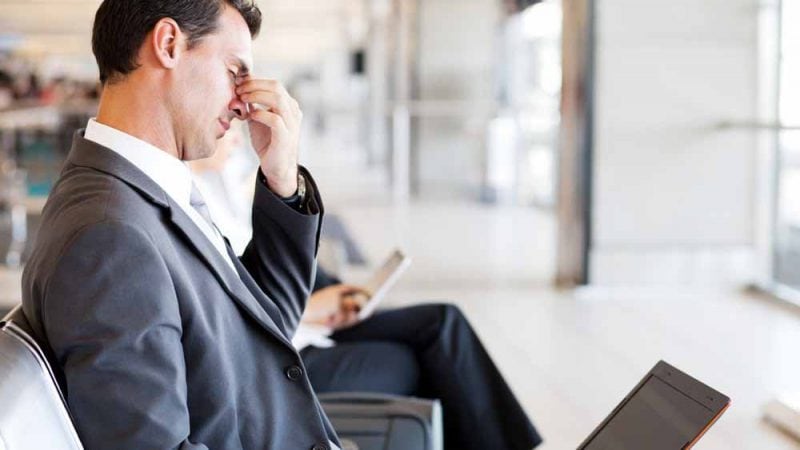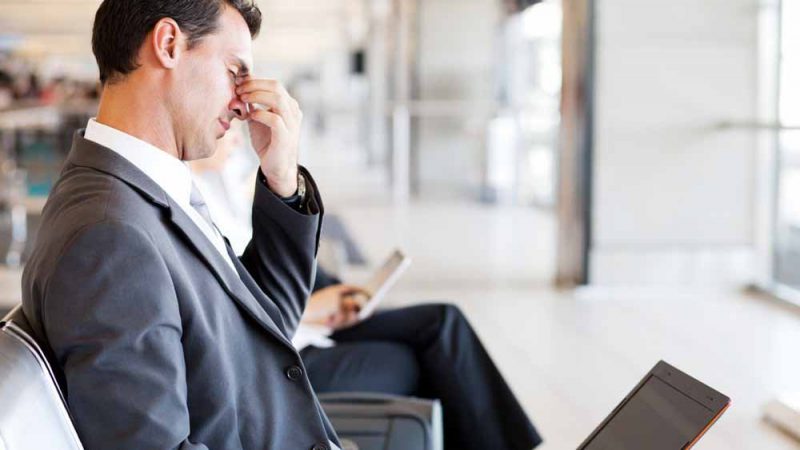Americans: Most Stressed People in the World
A new world poll asks how people are feeling about their lives. For Americans – it's not so well.
April 28, 2019


Americans are stressed out. In fact, they may be the most stressed of the world’s varied populations according to a new survey put out by Gallup that polled more than 150,000 people globally. The annual poll started in 2005 and asked questions that needed answers of positive or negative feelings. The data on Americans is based on responses from more than 1,000 adults.
The questions included:
* Did you feel well-rested yesterday?
* Were you treated with respect all day yesterday?
* Did you smile or laugh a lot yesterday?
* Did you learn or do something interesting yesterday?
* Did you experience the following feelings during a lot of the day yesterday?
* How about enjoyment?
Negative Experiences were also explored:
* Did you experience the following feelings during a lot of the day yesterday?
* How about physical pain?
* Did you experience the following feelings during a lot of the day yesterday?
* How about Worry? Sadness? Anger?
In the United States, more than half of the adults polled (55 percent) said they had experienced stress during “a lot of the day” prior, compared with just 35 percent globally. About 45 percent of the Americans surveyed said they had felt worry for much of the day before, compared with a global average of 39 percent. The share of Americans who reported feeling “a lot” of anger the day before being interviewed was the same as the global average: 22 percent.
When Gallup investigated the responses more closely, it found that being under 50, earning a low income and having a dim view of President Trump’s job performance were correlated with negative experiences among adults in the United States, according to analyses by the New York Times.
The findings were not all bleak for the United States, according to those reports. Despite having widespread negative experiences, Americans also generally reported more positive experiences, on average, than the rest of the world did.
Globally, just 49 percent of those interviewed said they had learned or had done something interesting the day before. In the United States, however, 64 percent of adults said the same.
The survey found that 71% People worldwide said they experienced a lot of enjoyment the day before the survey. It also found that Paraguay has the highest Positive Experience Index score worldwide (85 percent) but Afghanistan’s Positive Experience Index score dropped to a record low (43 percent).
Meanwhile, in a Cigna Heath survey released in October, America was found to rank ninth in the world for health and well-being.
The study found:
More Americans are not prioritizing physical health
More Americans reported insufficient sleep in quantity and quality, less exercise and worsening eating habits negatively impacting their physical well-being. Only 28 percent reported being at a healthy weight and just 33 percent know their Body Mass Index (BMI). More than 60 percent know their blood pressure and 85 percent believe that high blood pressure is curable with lifestyle change, but nearly one in three reported not taking action to address potentially problematic symptoms.
High incidence of stress across demographics
Four of five Americans report feeling stressed and 15 percent feel that stress is unmanageable. Working women report higher levels of stress (88 percent) than working men (80 percent). Despite the high incidence of stress, Americans feel a profound lack of support from employers in managing this important health issue. Only 25 percent of Americans report any assistance or support from their employer in managing stress – a 17 percent decline from 2018. Nearly three of five Americans (61 percent) reported that their employer did not provide or sponsor any form of workplace wellness program.
For those with programs in place, more than a third feel that they fail to address mental well-being. Self-help solutions like exercise, talking to friends and sleep are the top avenues people are trying to beat stress. Seeking professional help is not widely common in America yet (10 percent), though many find it quite and/or very effective once tried (44 percent). Comparatively, Americans are less stressed than the global average, with unmanageable stress ranking similar to European markets and Oceania.
Americans lack quality sleep
Only 35 percent of Americans report they get sufficient sleep at night, down six points from 2017 and just 32 percent of Americans report having “good quality sleep,” down eight points from 2017. American men (36 percent) claim to be sleeping better and longer than women (28 percent).
Time spent with family and friends on the decline
Only 45 percent of Americans attested to feeling excellent or very good about the amount of time they spend with their family, compared to 51 percent in 2017. Just 62 percent of Americans spend sufficient time with friends, down five points from the previous year. Americans reported having fewer friends to talk openly with, and less in-person interactions with both family and friends.




